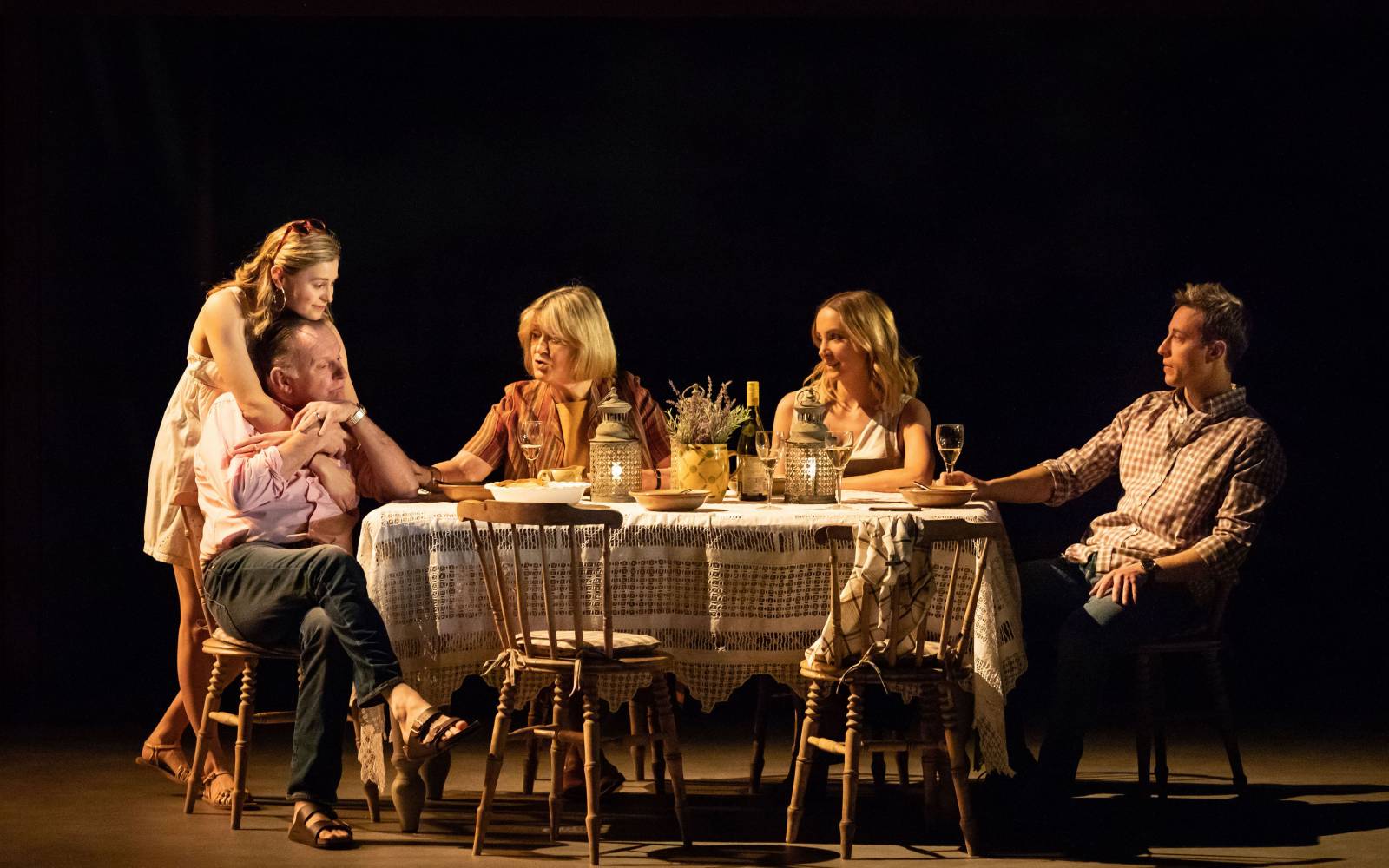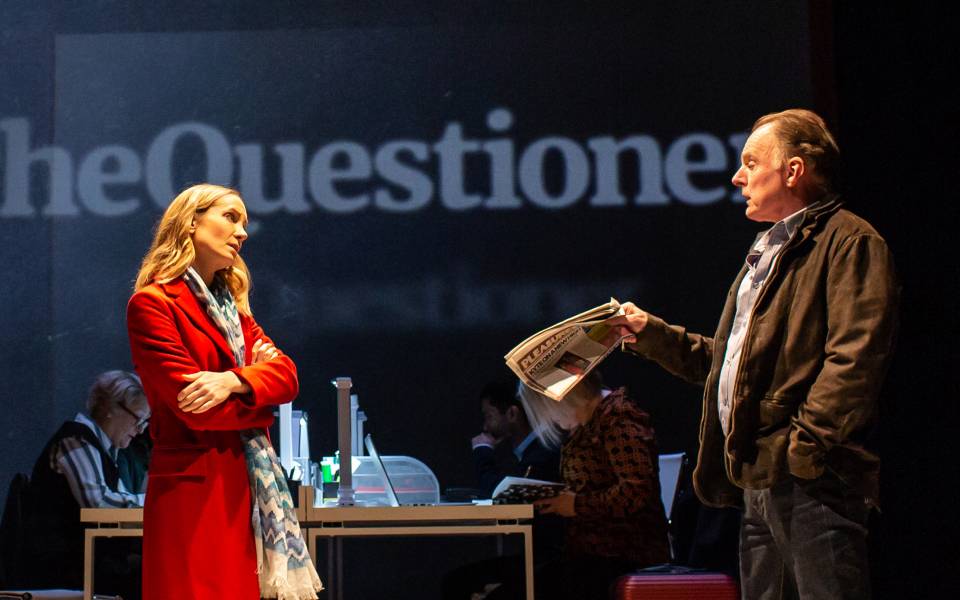
The New Bright Young Things
Helen Lewis
Do you know the story of the first time Boris Johnson got sacked? It was in 1998, back before the affairs, before the lying about the affairs, even before the former foreign secretary made his name with stories about Europe’s war on bendy bananas.
At the age of 23, Johnson was working at The Times, when he spiced up a news story about a newly uncovered palace by quoting a historian’s suggestion that it was the place where Edward II “had enjoyed a reign of dissolution with his catamite, Piers Gaveston”. One problem: the palace wasn’t built until 1325. Gaveston was executed in 1312. Johnson later admitted to the BBC’s Eddie Mair that he had “mildly sandpapered” a quote from Sir Colin Lucas to back up his reporting.
Here’s the bit that gets me: the historian, Sir Colin Lucas, was his godfather. Would the rest of us ever be tempted to do what Boris Johnson did? Impossible to say. Even if we had the motive, few would have the opportunity. Truly, the privileged can commit much classier forms of gross misconduct at work.
Reading coverage of the phone-hacking trial gave me a similar feeling of vertigo. Do you remember the “Chipping Norton set”? As prime minister, David Cameron lived close to his friend and advisor Steve Hilton, who was married to Google executive Rachel Whetstone. He hung out at Cornbury festival with cheese-making Blur bassist Alex James. He recorded a video message for Jeremy Clarkson’s birthday, disguised as The Stig. More controversially, he went horse-riding with Charlie Brooks, the husband of News of the World and Sun editor Rebekah. The Met had even thoughtfully loaned her a retired police horse. For a while, it felt as though everyone in the news lived within a twenty-mile radius of the Daylesford farm shop.

Discoveries like these are disorienting for anyone who grew up in, say, a small Midlands city or a Scottish borders town, or went to a typical state school outside London. Half of leading news journalists went to private school, according to the Sutton Trust, but only 7 per cent of the population overall. Research by Labour MP David Lammy found that Oxford and Cambridge universities gave more offers to one school – Eton – than to all pupils on free school meals in 2015.
Even looking at private schooling doesn’t reveal the full extent of these invisible webs of connection between the well-to-do. Today, there are state schools in chi-chi London postcodes which are filled with the sons and daughters of human rights lawyers and charity chief executives. They might disdain private education on principle, but they are nonetheless happy to move to a catchment area which has been ruthlessly gentrified. This type of elite lifestyle transcends politics. A friend once suggested that for all their differences, David Cameron (scion of the squirearchy) and Ed Miliband (son of a Marxist academic) had one thing in common. Neither had been to a job interview where they didn’t already know the person interviewing them.
In the 1920s, the children of privilege were nicknamed the Bright Young Things. Their collisions with the rest of the world could be bracing. When Decca, the most normal of the Mitford sisters, ran away from home, she soon found herself sitting in the dark in her East End slum flat. She had no idea that you needed to pay for electricity. Her sister Diana, imprisoned in Holloway during the Second World War for her fascist sympathies, grew strawberries and sunbathed in the prison grounds. She still had the feeling, she wrote later, that “one was a lovely one”.
Today’s Bright Young Things live similarly blessed lives, free from the cares of lesser mortals. They know which fork to use. Overdraft limits are theoretical. They have more godparents than other people. They know someone who knows someone who’s going to that party who can get you in, no problem. They spend their gap year building schools for under-nourished children, whether the under-nourished children want them to or not. They don’t worry, when the bill comes, even if they only had the soup. They enjoy their internships, but are ready for a proper job now. (As long as they can still go skiing.) They can take a low-paid position in a prestigious industry, because Dad bought them a flat in London. (It was an investment, really.) Anyway, caring about money is vulgar; they want a job that’s fulfilling. And they feel jealous sometimes of everyone else, everyone who struggles, because that must give their life meaning . . . mustn’t it? No one can be as bored and listless as a young rich person.

Journalism both attracts these privileged children and takes them as subjects. Nearly a century after the Mitfords enthralled Evelyn Waugh, Honourables and small-bore Windsor cousins still march across the diary pages of national papers, jumbled together with Instagram influencers and mediocre but gorgeous actors who don’t want to be typecast, yeah. These new Bright Young Things turn up anywhere with glamour and insecure wages, from film companies to art schools. (The book industry has the highest concentration of Poppies outside Flanders.)
Journalism, meanwhile, is full of “surnames”: people whose connections are revealed as soon as they introduce themselves. Mick Jagger’s son Gabriel works for The Times, after trying out a modelling career. (His mother Jerry Hall is married to Rupert Murdoch.) Both of Alan Coren’s children write for newspapers, as do Boris Johnson’s sister Rachel and father Stanley. (“My husband makes a hollow noise – like a sheep with croup – when the words ‘my publicist’ come out of my mouth,” Rachel has written. “He says it is the one position supernumerary to staffing requirements in any Johnson household.”) Jacob, the son of former Times editor William Rees-Mogg, made his first appearance in the press as an absurd child in a three-piece suit, and continues to work that personal brand to this day. Former chancellor Nigel Lawson has given us both the food writer Nigella and the columnist Dominic. “Deliciously Ella”, the queen of clean eating, is the daughter of former MP Shaun Woodward, and married to Tessa Jowell’s son Matthew.
For hacks from more normal backgrounds, their constant proximity to those with wealth and family connections is a reminder of how far the trade has fallen. Journalism is now a middle-class profession in every way except for the salaries. (It is also no longer a boozy one: endless flat whites have replaced lunchtime Chardonnay.) A typical starting salary on a local paper is less than £20,000, compared with the national average of £27,000. A junior reporter on a tabloid website might write four or more stories a day, every working day, in exchange for that money. Unsurprisingly, many journalists “cash out” in their 30s, heading for PR or public affairs.
And, of course, some of them graduate from making up quotes by their godfather to lying in front of buses. Yes, they end up in politics. God help us all.
Helen Lewis, February 2019
Helen Lewis is associate editor of the New Statesman, and author of Difficult Women: A History of Feminism in 11 Fights.
This article was originally published in the production‘s programme.
Photos by Helen Maybanks.
Further reading

The Necessary Biro
Harriet Lane
Earlier this year the Daily Telegraph ran a teaser in its print edition: ‘Jemima Khan: My verdict on the shake-up at Radio 2’. This was accompanied by a photo of Jemima Goldsmith, as she now prefers to be known. A forlorn tweet from the journalist…
More →